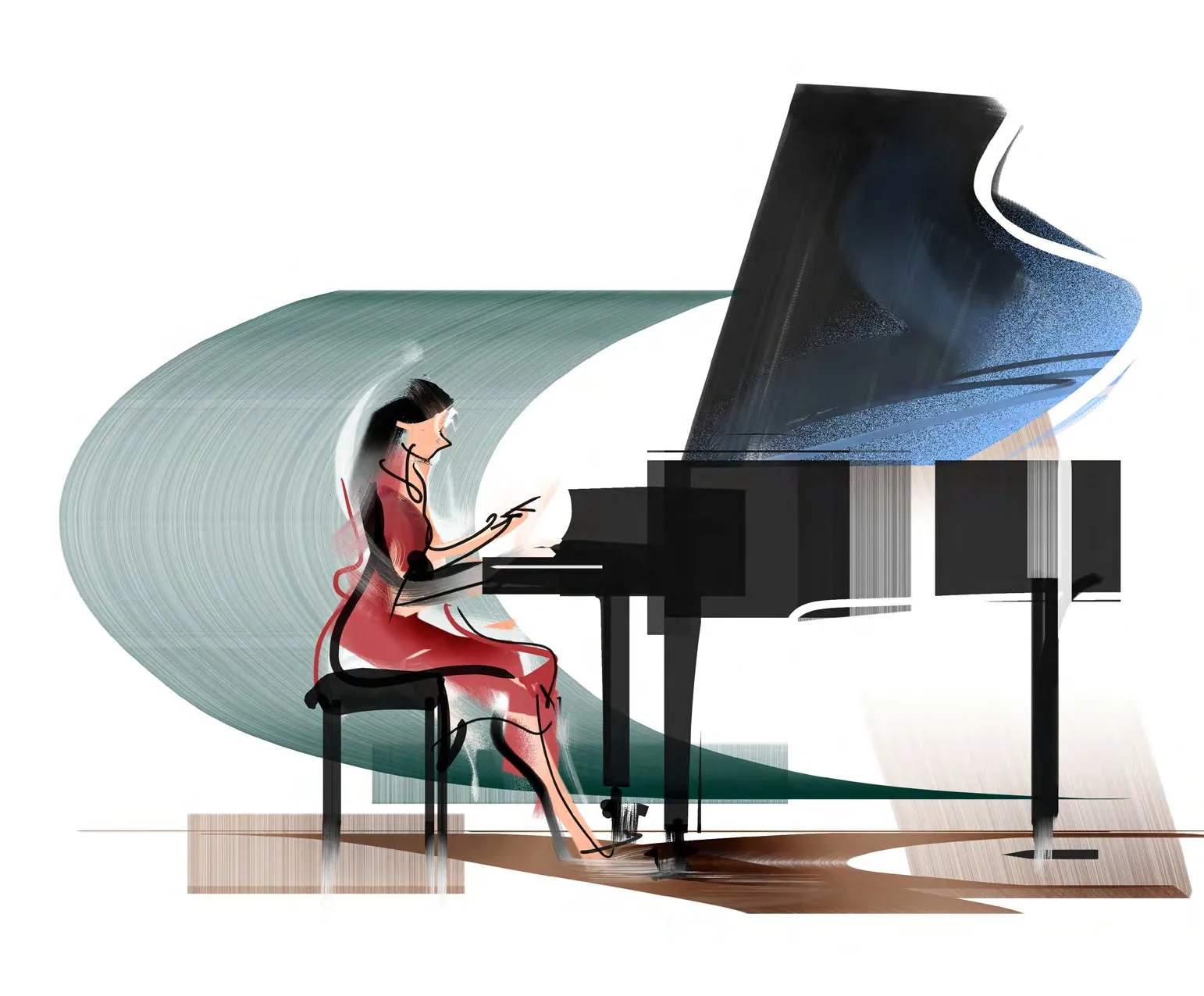Titleless Effect
2018-08-31ByZiZhongyun
By Zi Zhongyun
In the domain of classical music, it seems that nameless music is always favored over those bearing a name partly because “words make it cheesy” and music should be“beyond words.”
In the case of the famousMoonlight Sonata, I am still fascinated by the beautiful story of Beethoven meeting a blind girl playing the piano under the moonlight that I read about while I was in elementary school.Since then, the melody has been closely associated with the calm atmosphere of a moonlit night in my mind, and, in particular, I am deeply impressed by the first movement, which is smooth and fathomless against the blue sky,echoing the same tone as one Chinese poem’s: “A bright moon rises over the sea, from far away you share the moment with me.”
Then one day, a Soviet war film namedChapaev, which was released in China in the early 1950s, shattered my previous image of the sonata. In one scene,the little brother of a veteran orderly in the White Army violated the military code and was sentenced to death by the commanding officer. The docile orderly had always been loyal to the officer, but his brother’s death sentence had given birth to a desire for revenge. In that moment, the officer was playing the first movement ofMoonlight Sonata. The orderly, standing behind the officer, stepped in time with the music. With a dagger in his hand, he hesitated for a moment, and then the black rage rose in his heart and fell with the piano’s melody. As his murderous intent reached its climax, the orchestral music and the instrumental ensemble in the film together created a horrific atmosphere, as the music cycled through its crescendo like waves crashing on the shore. I was stunned, and the music had done its job.
I have never thought that the first movement ofMoonlight Sonatacould be harmoniously employed to create a scene of murder. Perhaps it was a kind of ironic effect, and I marveled about the talented Soviet artist that had come up with such an idea. This, in turn, best indicates that our understanding of music is an entirely subjective matter,and it is impossible to curb our imagination according to its name. This film scene has left a deep impression on my mind,and it has forever changed how I interpret a musical piece.
(FromThere Is a Piano, Beijing Publishing House. Translation:Zhu Yaguang)
一说便俗
文/资中筠
根据古典音乐传统,有标题音乐比无标题音乐似乎低一等,大约是“一说便俗”,音乐应该是“忘言”的。
以被冠以《月光》之名的奏鸣曲为例,那个贝多芬夜遇盲女在月光下弹琴的美丽故事流传甚广,我在小学课本里就读到过,自然深受影响。从此,这首乐曲在我心目中总摆脱不了月夜的氛围。特别是第一乐章舒缓、开阔,翘首云天,与“海上生明月,天涯共此时”的意境非常吻合。

直到有一次,一部苏联电影打破了我这想当然的联想。那是20世纪50年代初,在我国很出名的苏联电影《夏伯阳》中的一个场景:一名白军老勤务兵的在同一军中服役的弟弟犯军纪,被长官下令处死。老勤务兵一向极为驯服,此事唤起了他的仇恨,使他起了杀机。银幕上,那位军官在弹钢琴,弹的就是《月光》第一乐章,老兵在他身后用脚摩擦地板,跟着音乐节奏而动作。他手握匕首,犹豫不决,琴声就成为他心潮起伏的伴奏。当他的杀心达于最高潮时,电影里响起了管弦乐,配合钢琴,用一浪高一浪的渐强音奏出同样的旋律,取得惊心动魄的效果。这使我大开眼界。
我从来没有想到过《月光》奏鸣曲第一乐章可以和杀机联系起来,而且照样合拍。可能这是一种反讽手法,能有这样创意的苏联艺术家必定才气过人。这反过来也说明,从音乐中得到的体验有很大的主观性,很难用标题来限定人的想象。这一幕电影桥段令我铭刻于心,终生难忘。
